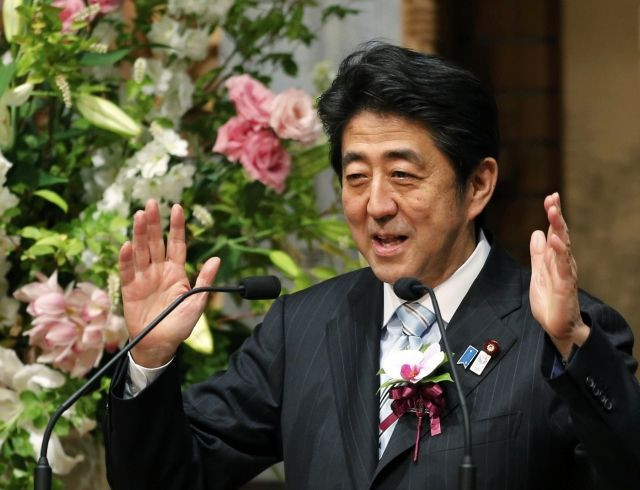Is Japan Eyeing Myanmar To Be The Next Bangladesh?

Japan is looking to the newly opened Myanmar for cheap labor as Prime Minister Shinzo Abe on Friday became the first Japanese leader to visit the country, once known as Burma, in 36 years.
About 4,000 Japanese executives per month visited Myanmar last year, making it the second most popular destination for businesspeople after Thailand, Bloomberg reported.
Abe’s three-day visit comes just as Myanmar's President Thein Sein returns from the U.S., where he met with President Barack Obama and courted companies like Ford Motor Co. (NYSE:F), Coca-Cola Co. (NYSE:KO) and Visa Inc. (NYSE:V).
Myanmar’s wages -- the cheapest in Asia -- give it an advantage over nearby neighbors that have long served as the region’s hub for cheap manufacturing. Average annual pay for workers is $1,100, compared to Bangladesh’s $1,478, Vietnam’s $2,602 and Thailand’s $6,704.
Already, Japanese companies are making serious investments. Abe will visit the port of Thilawa, 16 miles south of Yangon, the biggest city. There, Marubeni Corp. (TYO:8002), Mitsubishi Corp. (TYO:8058) and Sumitomo Corp. (TYO:8053) have already set up shop to help develop the port that will open, in part, as early as 2015.
“Myanmar is in the spotlight economically, and expectations for its development are high,” Japanese Chief Cabinet Secretary Yoshihide Suga said on May 22 in Tokyo. “We are hoping to strengthen our relations.”
Abe promised on Saturday to give "all possible assistance" to Myanmar's economy, and he pointed to the Thilawa Special Economic Zone, the large industrial zone close to Yangon that includes the port of Thilawa, as an example of the country's economic development.
There are about 35 ongoing Japanese investment-based construction projects in Myanmar, Al Jazeera reported. The Thilawa project is the largest. "Japan is happy to support nation-building in Myanmar," he said after visiting the project.
Japan gives Myanmar more aid than any other country, and it forgave a portion of Myanmar's debt -- 3.58 billion in January -- to help the country transition toward democracy and acquire new loans to build infrastructure and other projects that will make it easier and more profitable for Japan's corporations invest in Myanmar.
In 1977, Takeo Fukuda was the last Japanese leader to visit Myanmar, which was then led by General Ne Win, who led a socialist regime.
© Copyright IBTimes 2025. All rights reserved.






















